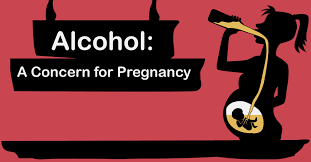Most of us have missed a period at one point or another — some with anticipation of a pregnancy, others because of anxiety or tension. At the clinic, we see women who menstruate like clockwork, while others report never having had a regular cycle. One thing is a given, however – shifts in hormonal balance will alter whatever pattern a woman has experienced in the past. Such shifts are especially common in perimenopause.
WHAT IS AN IRREGULAR PERIOD?
At the clinic we answer questions all the time about irregular periods. A textbook period happens every 24-29 days, but in truth what is “regular” covers a wide range. Cycles between 23-35 days are very common. A woman may get her period only one to four times a year. Or she might have periods that occur 2-3 times in a month and involve spotting or extremely heavy flow. Alternatively, she may have heavy episodes of bleeding every 2-3 months. Irregular periods are simply what is irregular for you.
For the most part, we don’t worry at the clinic about a missed period or two over the course of a year. More variation than that may indicate to us the beginning of perimenopause or a disruption of the natural chain of hormonal events that controls menstruation. A wide variety of factors can be responsible for irregular periods, among them:
- Significant weight gain or loss
- Over exercise
- Poor nutrition (or a diet too high in carbohydrates)
- Smoking
- Drug use
- Caffeine
- Excessive alcohol use (interfering with how the liver metabolizes estrogen and progesterone)
- Eating disorders
- Increased stress
- Polycystic ovarian syndrome/Estrogen dominance
- Uterine abnormalities (fibroids/cysts/polyps/endometriosis)
- Hormonal imbalances related to perimenopause
- Medications
- Chemotherapy
- Recent childbirth, miscarriage, or D&C
- Breastfeeding
WHY DOES BEING STRESSED CAUSE IRREGULAR PERIODS?

When we are stressed, regardless of the source (danger, personal relationships, work, environment) our adrenal glands are designed to secrete the hormone cortisol (read more in our articles in our Adrenal Health section). Cortisol has a direct impact on the sex hormones estrogen, progesterone, and DHEA. Eating disorders, dieting, drug use, and reliance on stimulants like caffeine and alcohol are also interpreted by the body as kinds of stress. Poor nutrition seems to physically change the proteins in the brain so they can no longer send the proper signals for normal ovulation.




